Reaching the summit of Kilimanjaro is an incredible achievement, but it requires preparation. While the climb is non-technical, it involves long days of trekking and significant altitude gain, so building your fitness is key to a successful and enjoyable experience. We recommend focusing on endurance and cardio training, such as hiking, running, or cycling, to build stamina. Strength training, especially for your legs and core, will help you handle the challenging terrain. Include weighted hikes with a backpack to simulate the load you’ll carry during the trek. Altitude can be challenging, so if possible, train at higher elevations to get your body accustomed to lower oxygen levels. If that’s not an option, building general fitness and mental resilience will still make a big difference. Finally, plan practice hikes of 10k+ over mixed terrain to break in your gear and get comfortable with long days on your feet and with a pack. Remember, consistent training and preparation will set you up for a safe, rewarding journey to the roof of Africa.
Proper preparation and equipment are essential for your safety and comfort during this Kilimanjaro Expedition. Below is a comprehensive kit list to help you prepare:
+ Kit ListA medical specialist will be provided in the team / FREC 3 medic in the team / Regular medical check throughout the expedition / Helicopter evacuation possible with the correct insurance policy
Please ensure that you have the correct insurance cover before departing for this trip. Your insurance MUST cover, treking up to 5,895 meters / 19,341 feet, medical, helicopter rescue and repatriation costs. We recomend that you use Global Rescue for your insurnace. They have a long standing excellent reputation and are widley used.
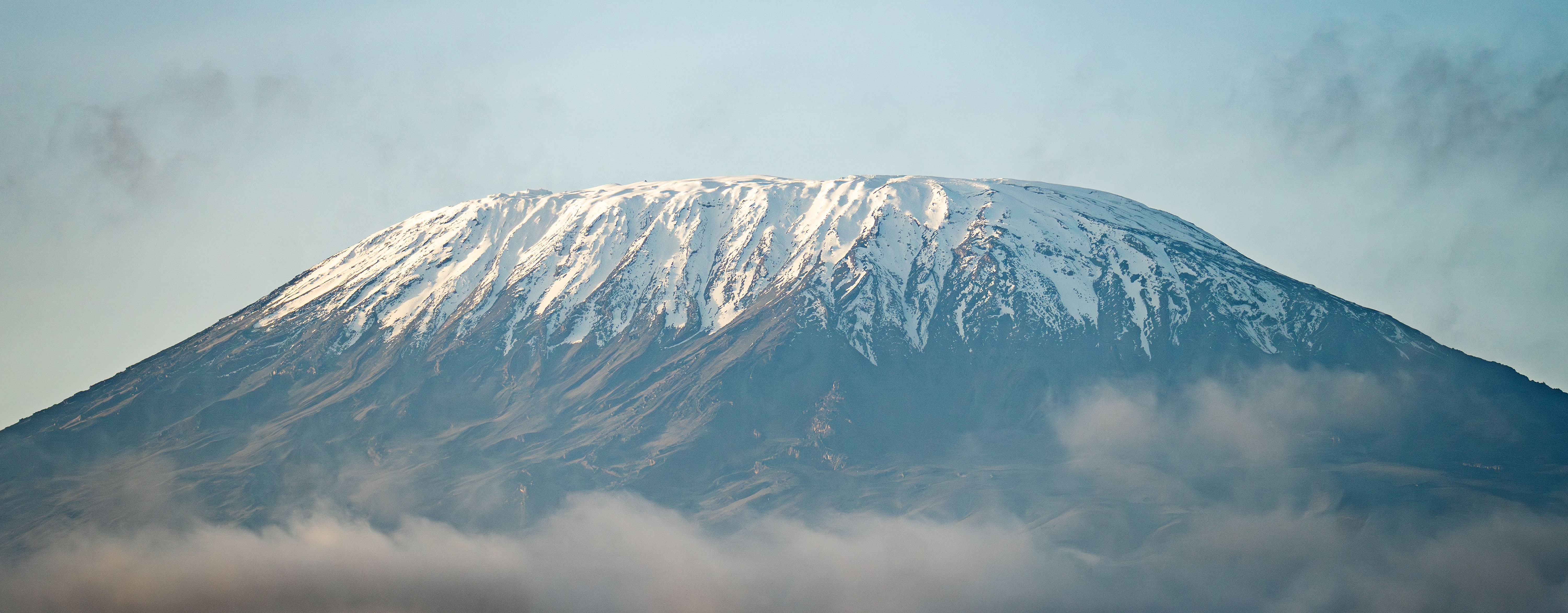
Climb Kilimanjaro – Africa’s Highest Peak
Standing at 5,895m, Kilimanjaro is the tallest free-standing mountain in the world and one of the legendary Seven Summits. Trekking to its summit is a challenge that blends endurance, breathtaking scenery, and the unforgettable reward of reaching Uhuru Peak.The journey takes you from lush rainforest and alpine desert to the icy heights of the summit, each step offering new perspectives and deeper connection with the mountain. Along the way, camaraderie builds within the team, creating bonds as lasting as the memories. While the climb demands preparation and resilience, your safety is our highest priority. Our expert guides manage acclimatization, monitor health, and plan every detail to give you the best chance of success. More than a climb, Kilimanjaro is a personal journey of discovery and achievement. Whether you seek adventure, transformation, or the triumph of standing on Africa’s highest point, this expedition is an experience you’ll carry for life.
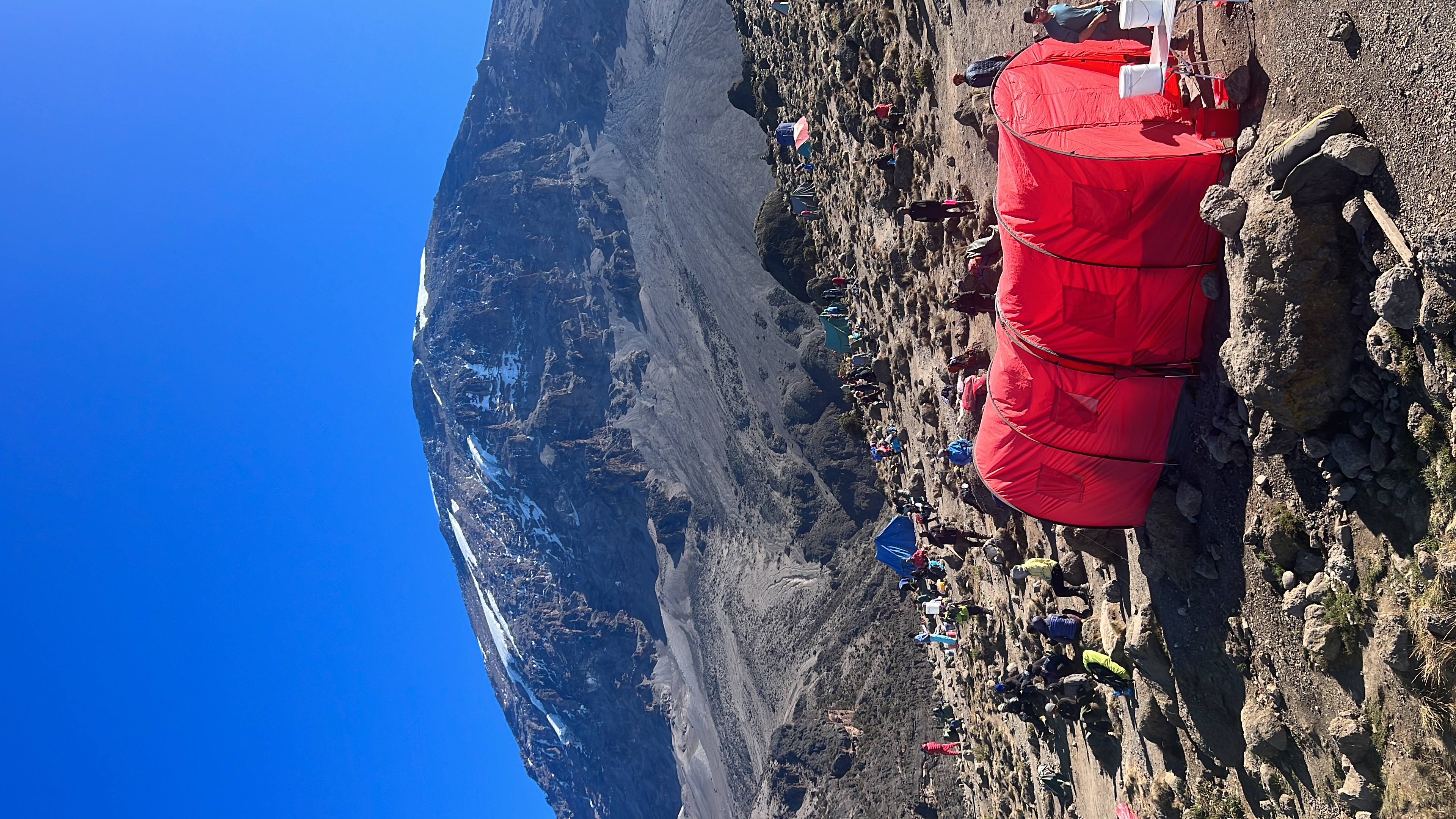
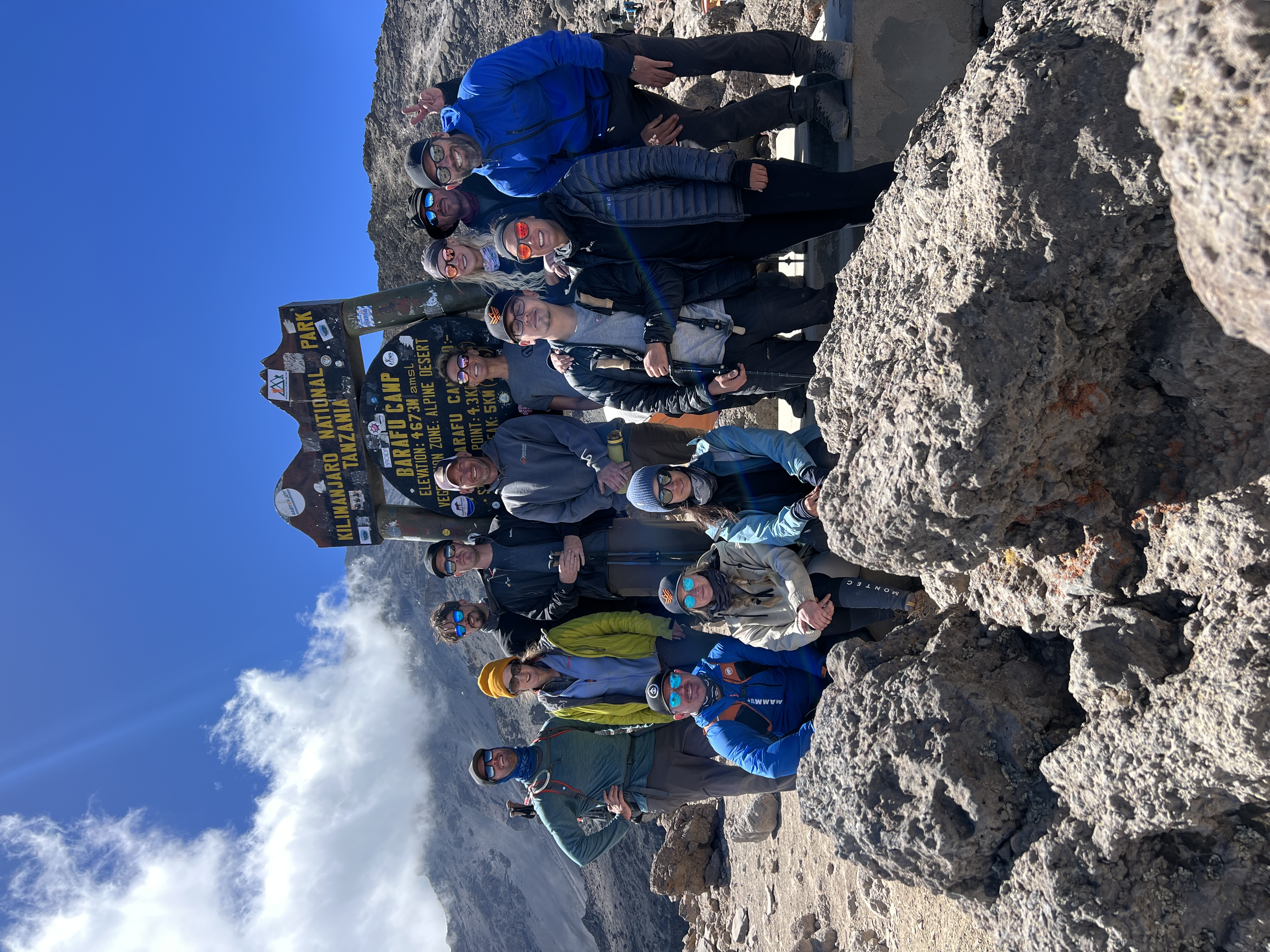
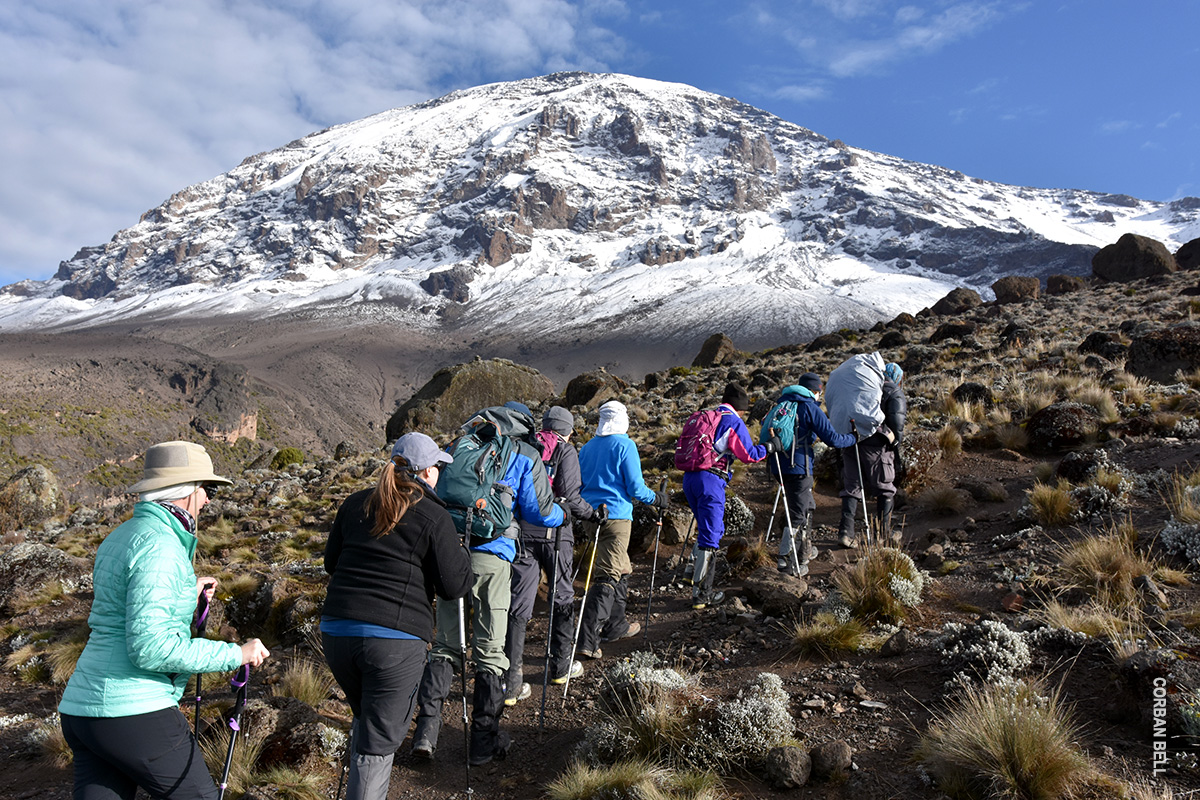
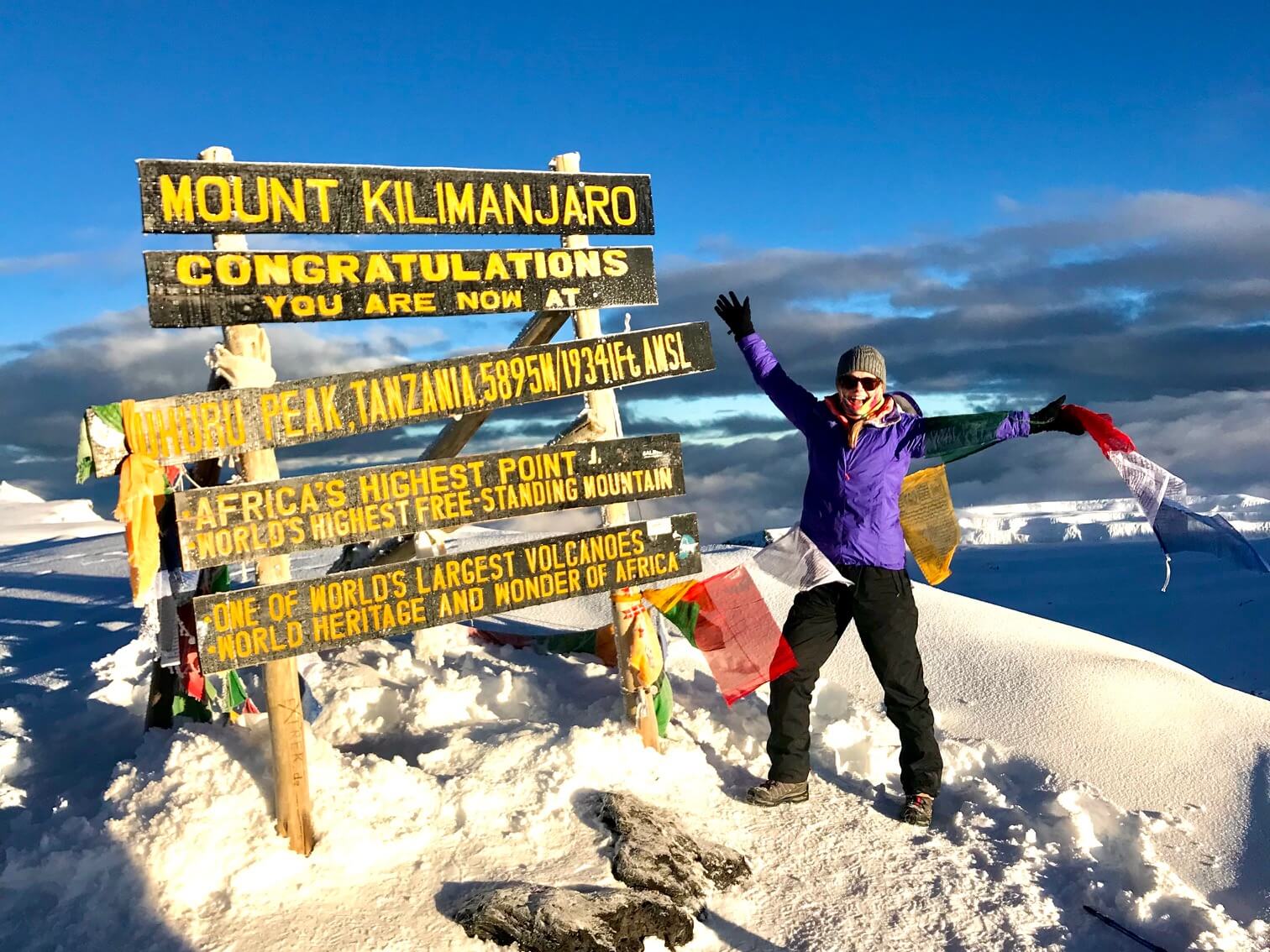

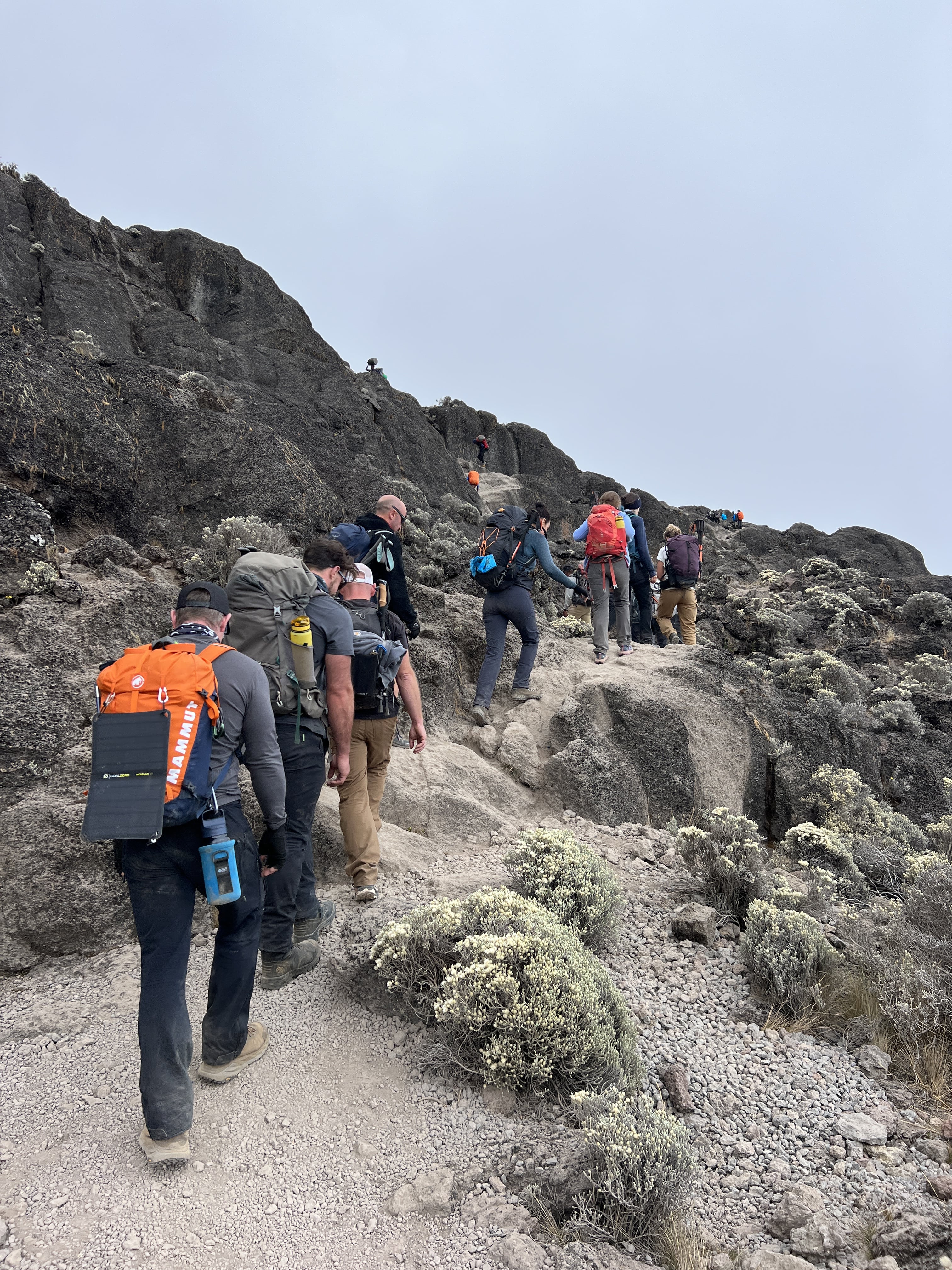
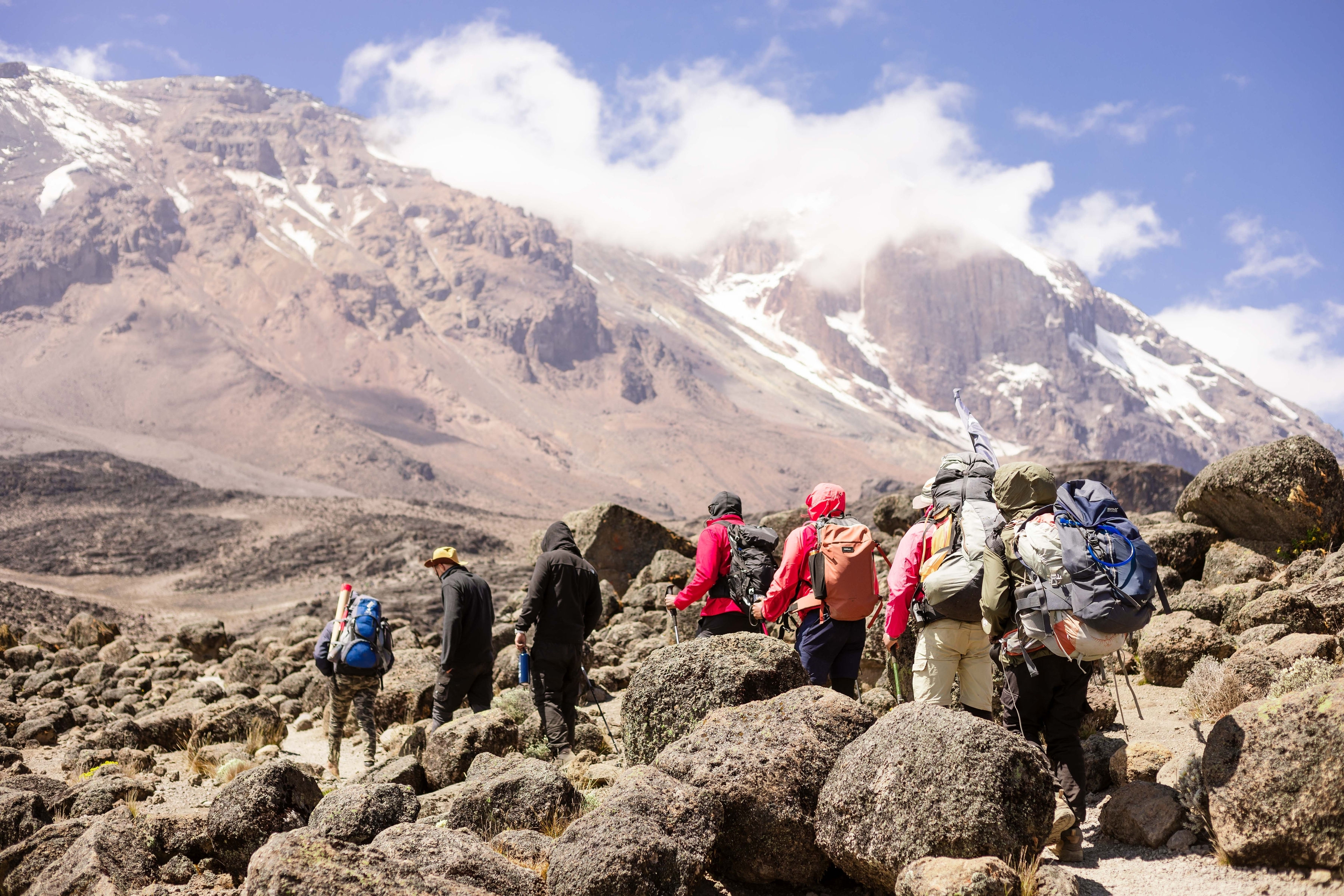
Climbing Kilimanjaro is more than just a physical challenge; it’s a journey of self-discovery and an opportunity to stand atop Africa’s highest point. Unlike many high-altitude peaks, Kilimanjaro is non-technical, making it accessible to anyone with determination and the right preparation. The trek offers an unparalleled chance to witness the planet’s diverse ecosystems within a single climb, from tropical rainforests teeming with wildlife to the stark beauty of the summit glaciers. It’s a bucket-list adventure that will leave you with lifelong memories and a profound sense of achievement.
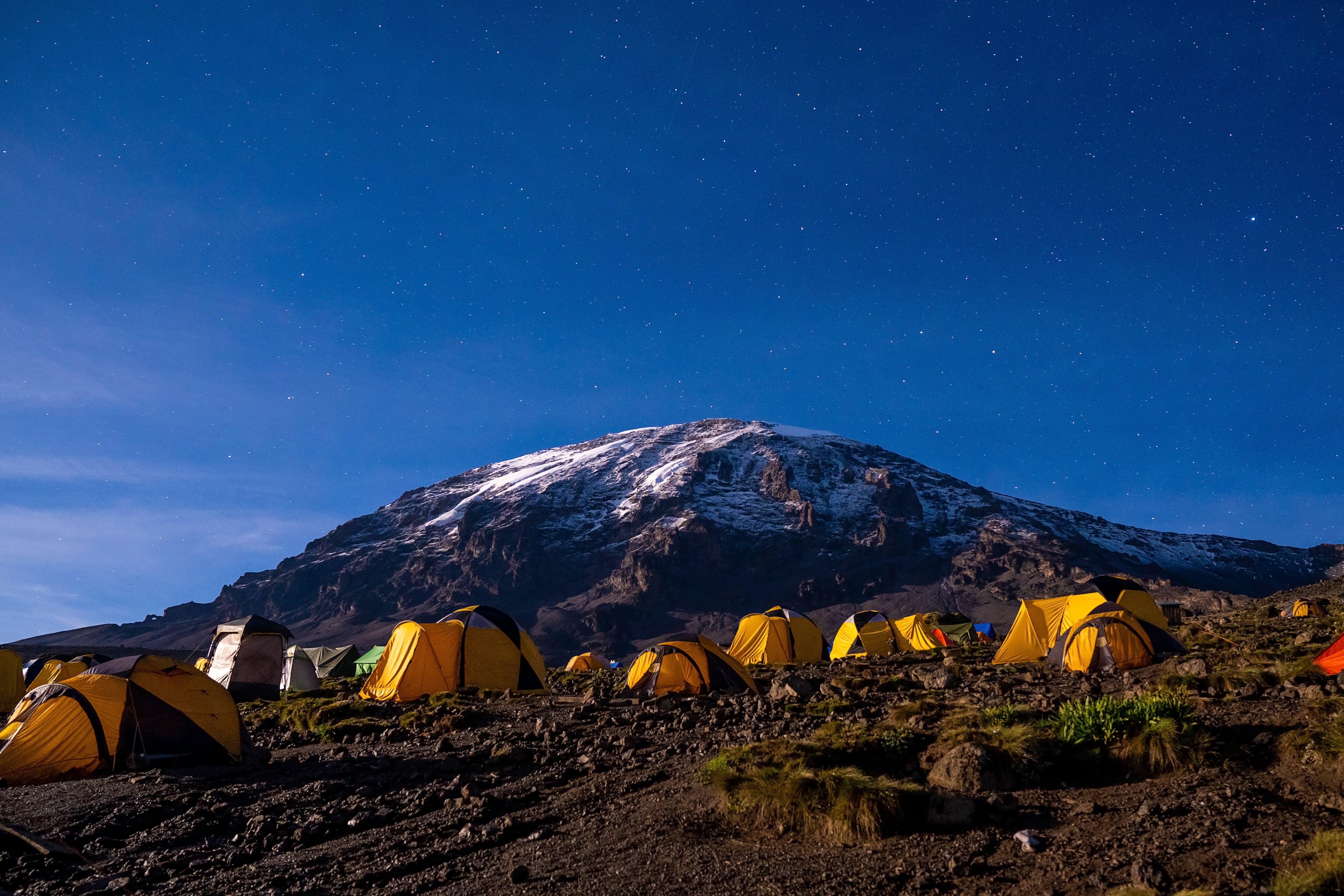
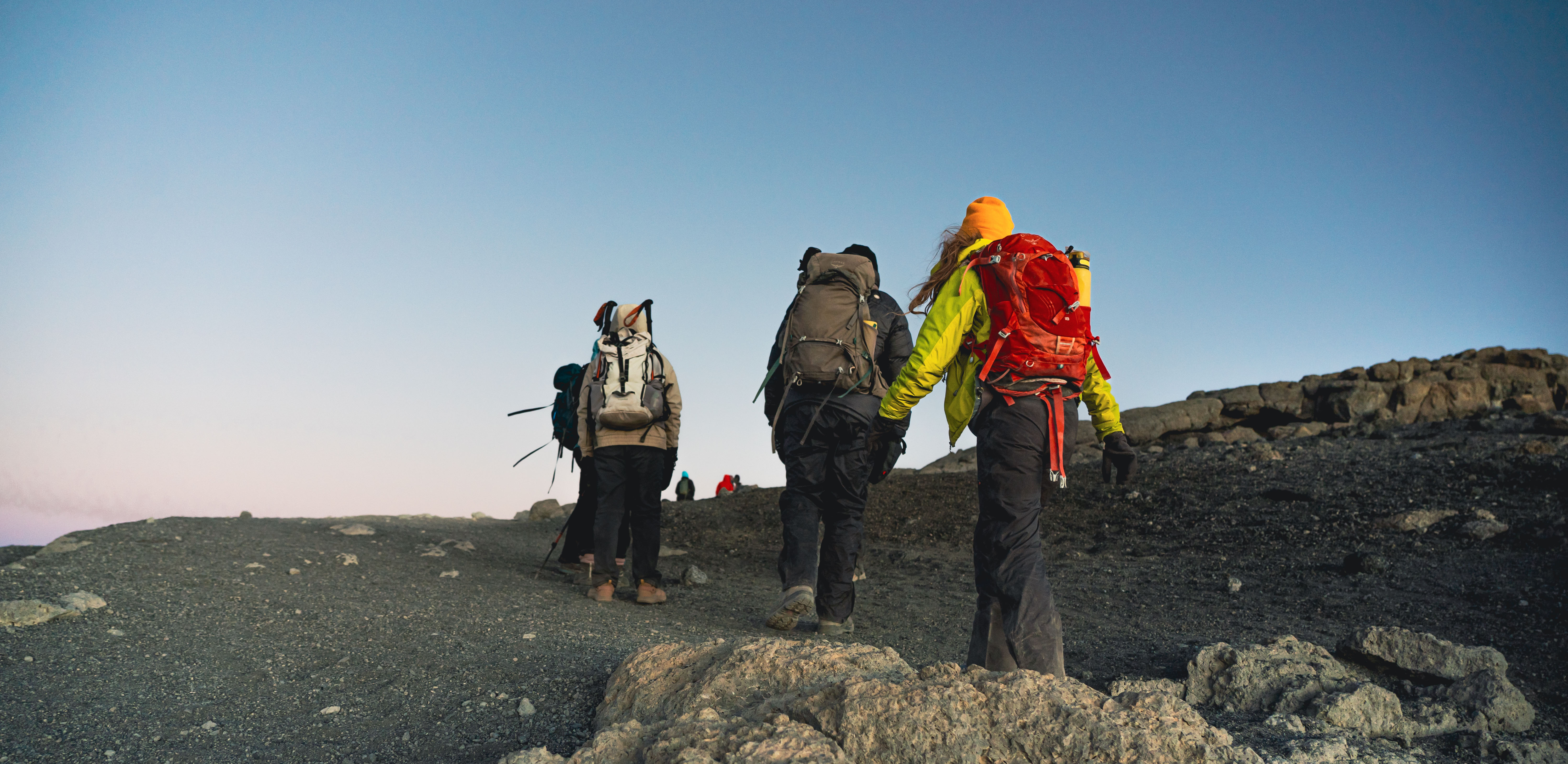
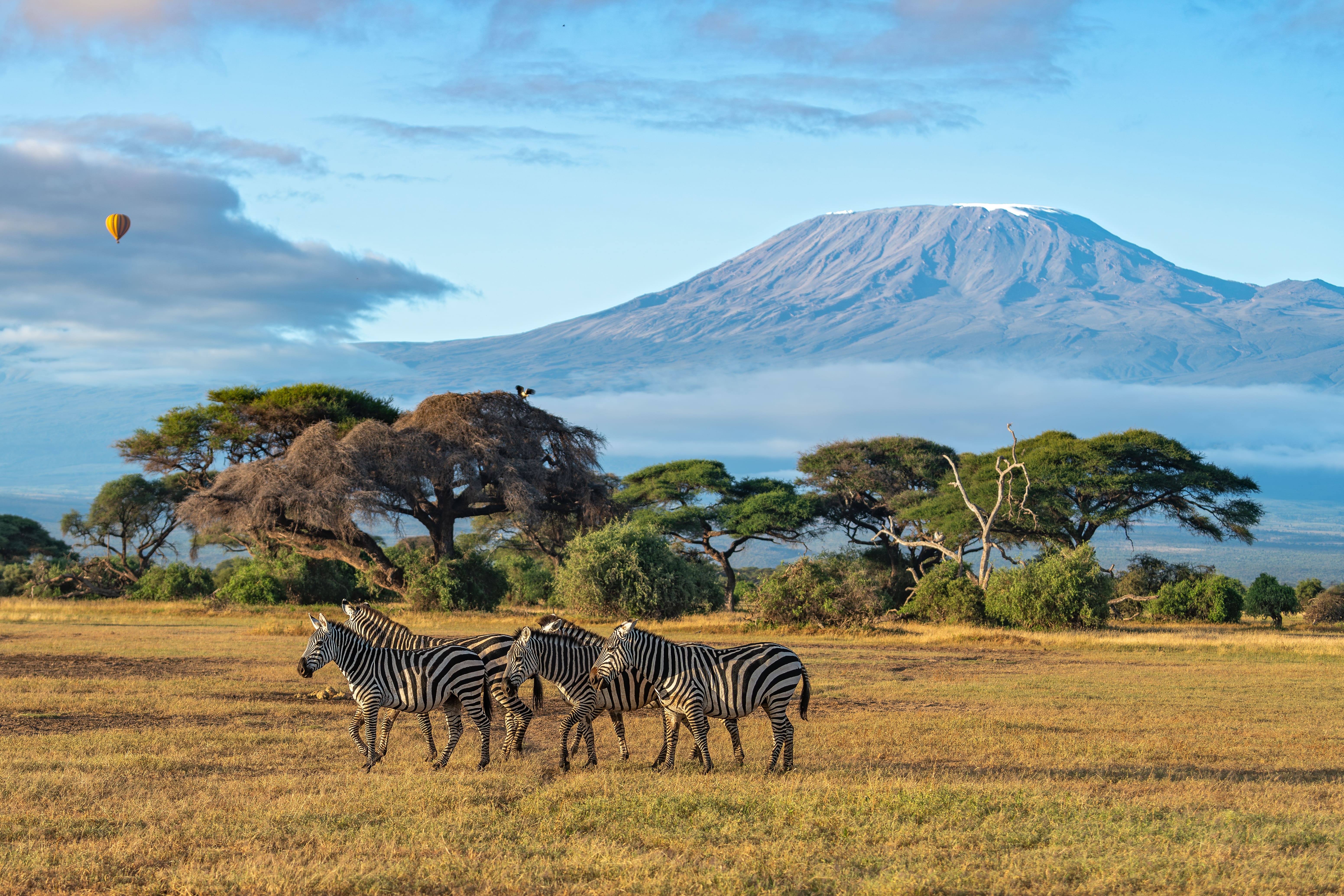
Day 1
Arrival at Kilimanjaro International Airport
Arrive at Kilimanjaro International Airport and transfer to your hotel in Arusha. Take the day to rest, prepare, and meet your guides for a pre-climb briefing and gear check.
Day 2
Londorossi Gate to Shira Camp 1
Drive to Londorossi Gate, from here you will check in to the national park and then continue to Morum Barrier Gate where you start your trek. Begin your ascent with a short 3km trek to Shira Camp 1, located at high altitude, offering incredible views of Kilimanjaro and the surrounding landscape.
Day 3
Shira Camp 1 to Shira Camp 2
Today, trek from Shira Camp 1 to Shira Camp 2. This gradual ascent allows for better acclimatization while enjoying the striking scenery of the Shira Plateau and Kilimanjaro.
Day 4
Shira Camp 2 to Lava Tower, then Barranco Camp
Hike up to Lava Tower at 4,600m (15,100ft) for an acclimatization period of 2-4 hours, then descend to Barranco Camp (3,960m/12,992ft). This "climb high, sleep low" strategy aids your body’s adjustment to the altitude.
Day 5
Barranco Camp to Karanga Camp
Tackle the famous Barranco Wall and continue on to Karanga Camp. Afterwards enjoy an acclimatization hike toward Barafu for better altitude preparation before dinner and rest.
Day 6
Karanga Camp to Barafu Camp
A steady trek from Karanga Camp up to Barafu Camp, located at 4,600m (15,100ft). This is wher we will rest and hydrate whilst planning in preparation for your summit push.
Day 7
Summit Day - Barafu Camp to Uhuru Peak, then descend to Millennium Camp
An early start for your summit push under the stars you'll climb up to Stella Point. From here is a gradual short climb to Uhuru Peak, Africa’s highest point. After celebrating your success, you'll descend back to Barafu Camp for food and rest, from here we then continue down to Millennium Camp forto sleep.
Day 8
Millennium Camp to Mweka Gate
A beautiful descend to Mweka Camp for lunch, we will then continue down to Mweka Gate, youll go from plateus to jungles and might even spot monkeys in the forest on the way down to the exit Kilimanjaro National Park. A transfer back to your hotel in Arusha will await you. Showers and Team dinner awaits to celebrate the success.
Day 9
Departure from Tanzania
After breakfast, you’ll be transferred to the airport for your departure flight or an optional extension to explore Tanzania's wildlife.
Kilimanjaro Kit List
Base Layers
Mid Layers
Outer Layers
Insulated Layers
Trekking Clothes
Gloves
Headwear
Footwear
Underwear & Sleepwear
Sleeping Gear
Backpacks & Bags
Hydration
Personal Items & Accessories
Optional but Useful
Snacks (energy bars, nuts, dried fruit, jerkey, chocolate, etc.) Electrolyte tablets or powders vitamins and personal medication that must be declared pre exped.
Passport (valid for at least 6 months)Tanzanian visa Travel and high-altitude, helicopter rescue and repatriation insurance. Cash (USD for tips, visas, and personal expenses) Correct travel plug adapter.
Arrival and departure airport transfers 2 nights’ accommodation at a comfortable hotel in Moshi. All nights’ accommodation in high-quality, waterproof, four-season mountain tents. All Kilimanjaro National Park fees, Expert guidance from professional, experienced mountain guides. All meals during the climb, freshly prepared and nutritious / Salaries for guides, porters, and cooks. Mess tents equipped with tables and chairs for added comfort. Clean, purified drinking water provided throughout the expedition. Comprehensive crisis management and safety protocols in place. Commitment to fair and ethical treatment of all porters and staff.
International flights, Tanzania visa fees. Additional hotel stays and meals outside the itinerary due to early expedition departure. Personal expenses (e.g., laundry, phone calls, beverages, shopping) Summit bonus tips (minimum USD 250) and gratuities. Travel insurance, including high-altitude, medical, accident, and emergency evacuation coverage. Personal gear and equipment.
If you cancel your trip, deductions will be made from your advance payment to cover allocated costs. Charges are: 90+ days before departure:
Full refund of deposit 61-90 days:
70% refund of deposit 46-60 days:
50% refund of deposit 31-45 days:
No deposit refund + 30% of total trip cost
30 days or less: 100% of total trip cost
All cancellations must be submitted in writing (email or letter) within the notice period.